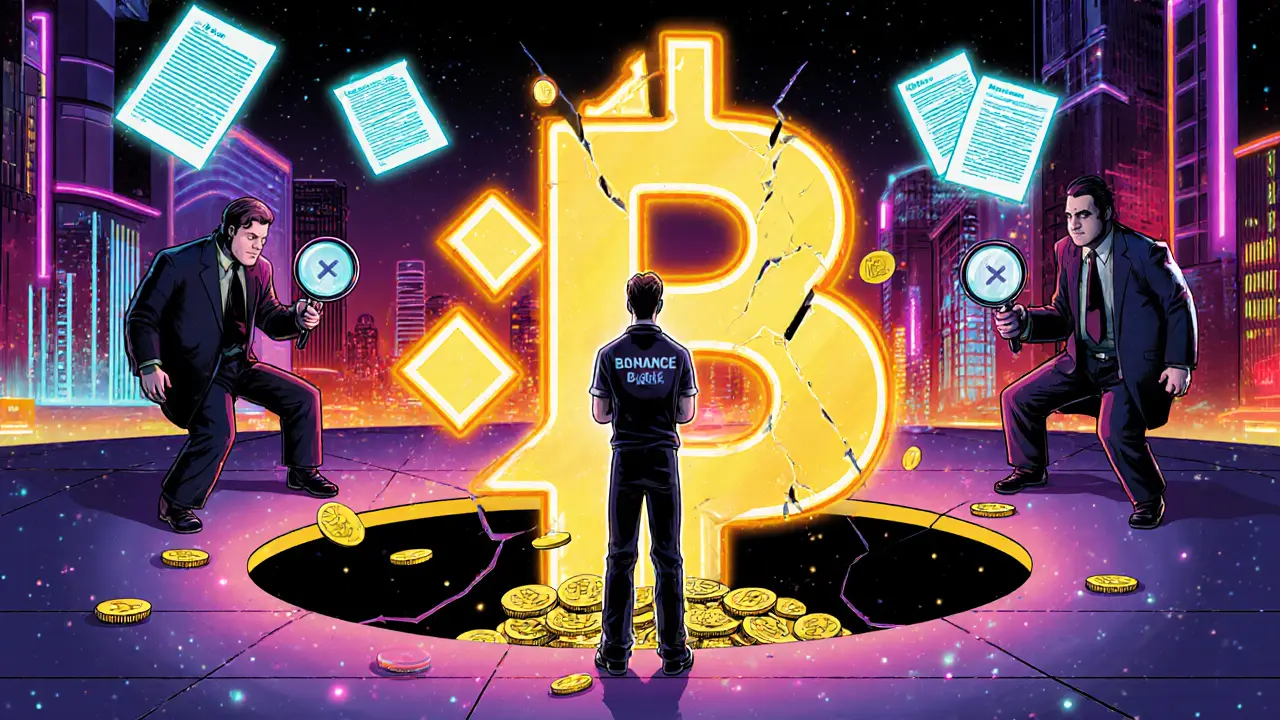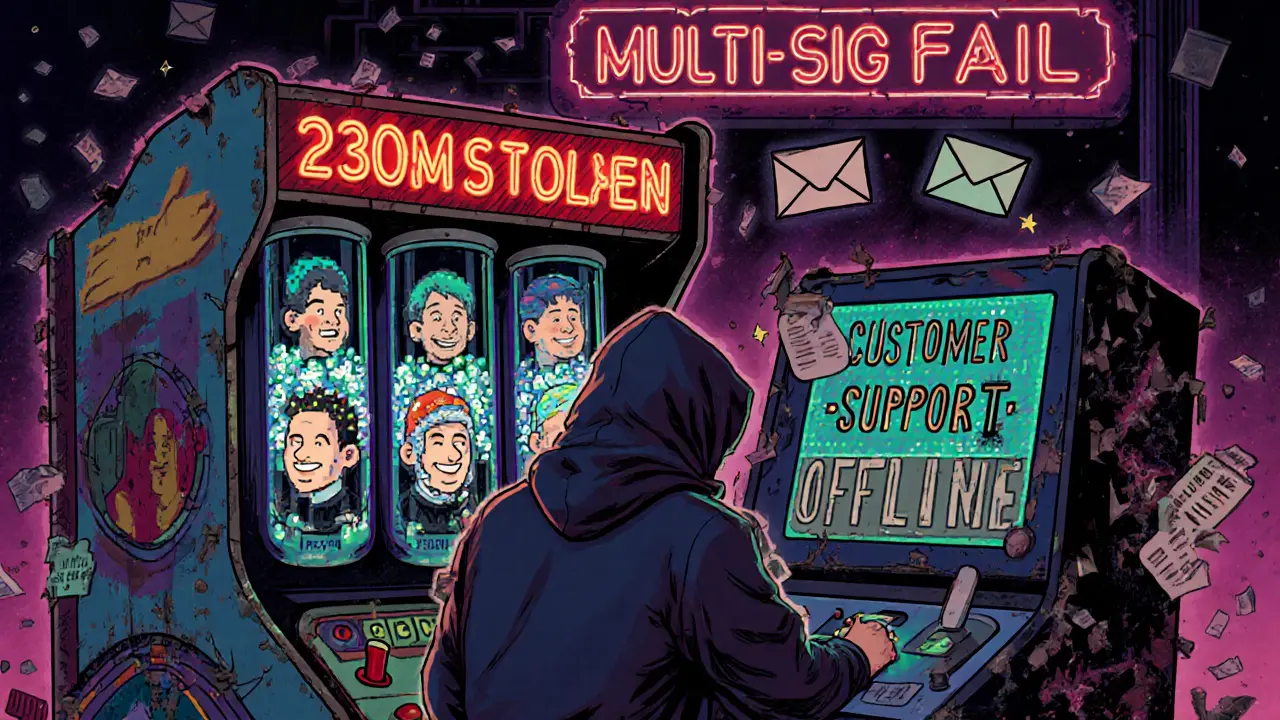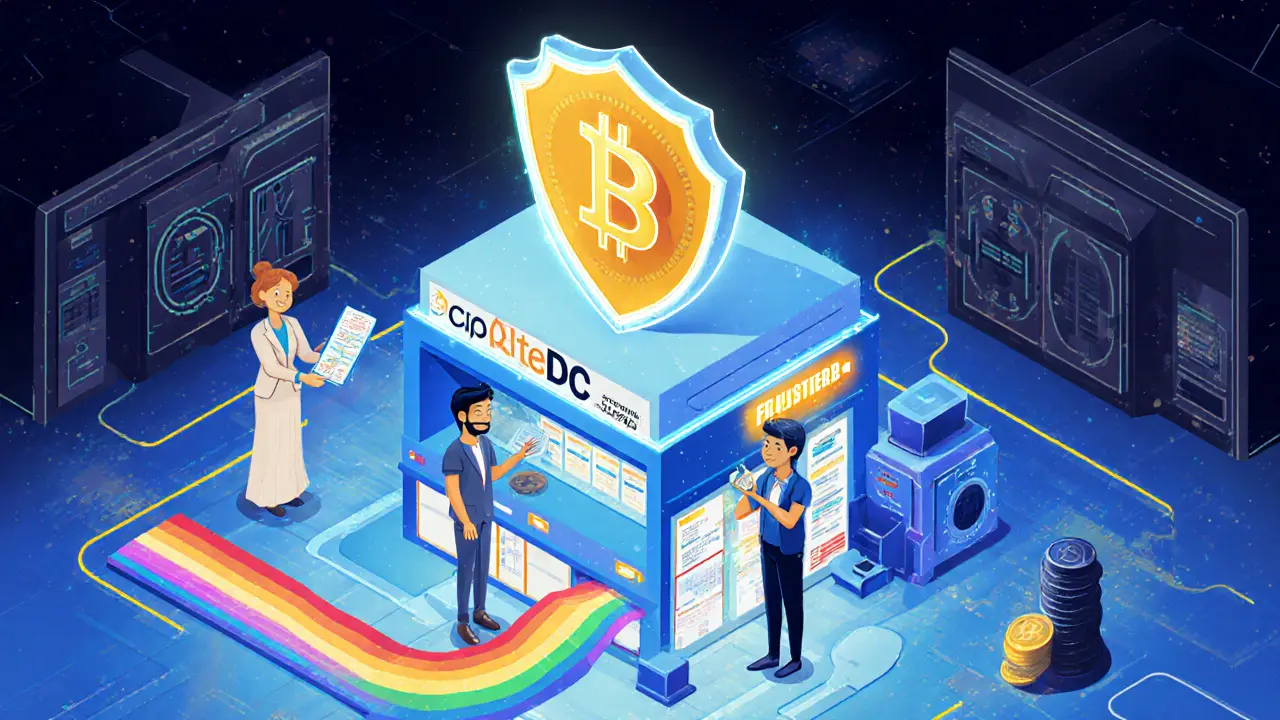Crypto Exchanges to Avoid if You're in India
 Nov, 14 2025
Nov, 14 2025
If you're trading crypto in India, picking the wrong exchange could cost you more than just money-it could land you in legal trouble, freeze your funds, or leave you with no way to file your taxes. The rules aren't always clear, but the risks are. And some exchanges are making it dangerously easy to lose everything.
Why Compliance Isn't Just a Buzzword
India doesn't ban crypto trading, but it doesn't protect you if things go wrong. The Financial Intelligence Unit of India (FIU-IND) is the only body that tracks crypto transactions for anti-money laundering purposes. If an exchange doesn't register with them, you're on your own. No legal recourse. No bank support. No tax help. Binance and Bybit, two of the biggest names globally, have each been fined millions by Indian authorities for not following FIU guidelines. That’s not a warning-it’s a red flag. If regulators are fining them, they’re not playing by local rules. And if they’re not following the rules, what’s stopping them from disappearing with your money?The WazirX Disaster: A Cautionary Tale
WazirX used to be India’s biggest exchange. Six million users. $5.4 billion traded every month. It even had ties to Binance and the Blockchain India Fund. It felt safe. Then, in July 2024, hackers stole $230 million. How? They broke into a multi-signature wallet that wasn’t properly secured. The exchange didn’t have enough safeguards. And after the hack, instead of returning funds, they froze accounts and started restructuring-without telling users how or when they’d get their money back. Today, WazirX still holds user funds. Some people have waited over a year. There’s no official timeline. No clear communication. And the platform still lets you trade 250+ cryptocurrencies with fees between 0.10% and 0.40%. But safety? Gone. If you’re still using WazirX, you’re not trading crypto-you’re gambling with your savings.Bank Blocks and Frozen Accounts
Indian banks hate working with non-compliant exchanges. Why? Because if the FIU flags them, the bank could get fined too. So they cut off connections. You try to deposit INR? It gets rejected. You try to withdraw? Your account freezes. And there’s no customer service that can fix it. You might think, “I’ll just use a P2P platform.” But even then, if the exchange you’re trading on isn’t FIU-compliant, your bank can still block transfers. And if you’re caught sending money to a flagged platform, the Enforcement Directorate (ED) might come knocking-for money laundering, even if you didn’t know the exchange was illegal.
Tax Nightmares You Didn’t Sign Up For
India taxes crypto profits at 30%. Plus, there’s a 1% TDS on every sale over ₹50,000 in a financial year. Sounds simple, right? Only if your exchange gives you the right reports. Non-compliant exchanges don’t generate tax-ready statements. They don’t track cost basis. They don’t calculate short-term vs. long-term gains. You’re stuck downloading hundreds of transaction logs, matching them to INR rates, and doing manual calculations in Excel. One trader in Delhi spent 80 hours last year just filing crypto taxes. He used an exchange that didn’t provide reports. He got audited anyway. The IT department didn’t care that he didn’t have the data. He paid a penalty.No Customer Support? No Safety Net
When something breaks on a regulated platform, you have a process. You file a complaint. There’s a timeline. Maybe even a resolution. On non-compliant exchanges? You get silence. Or a bot that says, “We’re looking into it.” After the WazirX hack, users reported emails going unanswered for months. Phone lines disconnected. Live chat vanished. Some users say they’ve emailed support over 50 times. No reply. If your account gets frozen because the exchange is under investigation, there’s no government body to appeal to. No ombudsman. No consumer court that will take your case because the platform isn’t registered under Indian financial law.What Exchanges Are Actually Safe?
You don’t have to trade on risky platforms. Several Indian exchanges are actively working with regulators:- CoinDCX: Registered with FIU-IND, provides tax reports, partners with Indian banks.
- CoinSwitch Kuber: Compliant with TDS rules, offers INR deposits via UPI and NEFT, transparent fee structure.
- ZebPay: One of the oldest Indian exchanges, FIU-compliant, regular security audits.
- Unocoin: Offers tax summaries, has been operating since 2013, supports direct bank linking.
- Bitbns: FIU-registered, provides API access for tax tools, active customer support.

How to Check If an Exchange Is Safe
Before you deposit a rupee, do this:- Go to the FIU-IND website and search for the exchange’s name. If it’s not listed, avoid it.
- Check if the exchange offers INR deposits via UPI, NEFT, or IMPS. If it only accepts crypto-to-crypto or third-party wallets, it’s likely non-compliant.
- Look for a dedicated tax report section in your dashboard. If you can’t download a TDS or capital gains summary, move on.
- Search Reddit or Twitter for recent user complaints. If people are saying “my funds are frozen” or “no response for 6 months,” that’s a red flag.
- Never use an exchange that doesn’t verify your identity (KYC). If they skip it, they’re not following Indian law.
What Happens If You Use a Risky Exchange?
You might think, “I’m just buying Bitcoin. I’m not doing anything illegal.” But the system doesn’t care about your intent. If you trade on a non-compliant exchange:- Your bank can freeze your account without warning.
- The Enforcement Directorate can investigate you for suspected money laundering.
- You won’t be able to prove your crypto gains for tax purposes-and you’ll still owe 30%.
- If the exchange gets shut down, your money could vanish forever.
The Bottom Line
Crypto isn’t illegal in India. But operating on the wrong exchange? That’s a legal and financial minefield. You don’t need to chase the highest yields or the newest tokens. You just need to pick a platform that follows the rules. The ones listed above have proven they’re trying to stay compliant. They’re not perfect, but they’re the safest option you’ve got. If you’re still using Binance, Bybit, or WazirX, it’s time to move. Not tomorrow. Not next week. Now. Your money-and your peace of mind-depends on it.Is it illegal to trade crypto on Binance or Bybit in India?
No, it’s not illegal to trade crypto on Binance or Bybit in India. But it’s risky. Both exchanges have been fined by FIU-IND for not complying with Indian reporting rules. If they get shut down or freeze accounts, Indian authorities won’t help you recover your funds. You’re on your own.
Can I get my money back from WazirX after the 2024 hack?
There’s no clear answer. WazirX hasn’t returned funds to most users since the $230 million hack in July 2024. The exchange claims it’s restructuring, but there’s no official timeline, no communication, and no guarantee. Many users have waited over a year. If you’re still holding funds there, consider it locked until further notice.
Do Indian exchanges report to the tax department?
Yes, compliant exchanges like CoinDCX, CoinSwitch, and ZebPay automatically deduct 1% TDS on sales over ₹50,000 and provide tax reports. Non-compliant exchanges don’t. If you use a foreign platform, you’re responsible for tracking every trade and filing your own returns-otherwise, you risk penalties from the income tax department.
Why do Indian banks block crypto deposits?
Indian banks avoid working with exchanges that aren’t registered with FIU-IND. If an exchange is flagged for money laundering risks or lacks proper compliance, banks freeze transactions to protect themselves from regulatory penalties. This isn’t about crypto-it’s about following financial laws.
Can the Enforcement Directorate (ED) investigate me for using a non-compliant exchange?
Yes. Even if you’re just buying Bitcoin, using an unregistered exchange can trigger an ED investigation for suspected money laundering. The ED doesn’t need proof of crime-they only need to suspect funds flowed through a non-compliant platform. You’ll need to prove your transactions were legal, which is hard without proper records.
Are there any Indian crypto exchanges that are fully regulated?
No exchange is fully regulated yet, because India doesn’t have a complete crypto law. But exchanges like CoinDCX, CoinSwitch, ZebPay, Unocoin, and Bitbns are registered with FIU-IND and follow TDS and KYC rules. They’re the safest options available today, even if the legal framework is still evolving.
Should I use P2P trading instead of an exchange?
P2P trading is safer than using a non-compliant exchange, but only if you’re buying from someone on a compliant platform. If you use P2P on Binance or Bybit, you’re still exposed to their risks. Stick to P2P on CoinSwitch or ZebPay, where the platform enforces KYC and can mediate disputes.